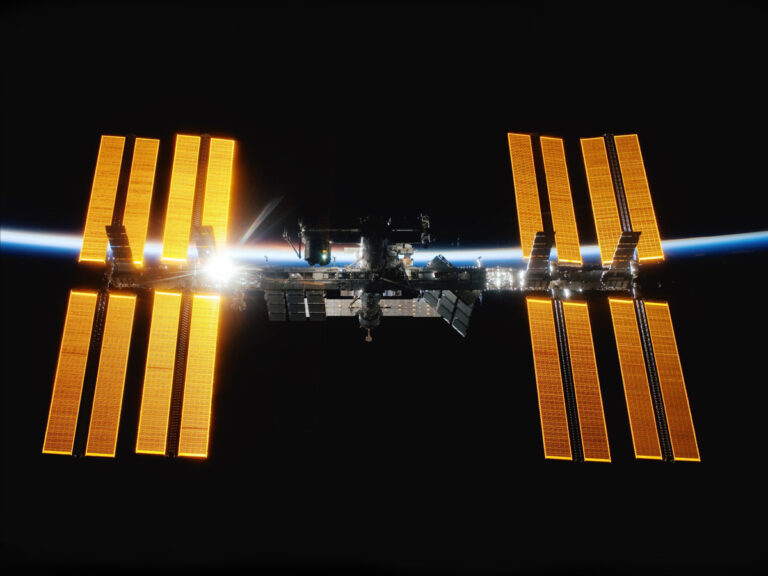UK scientists are sending human muscle cells to the ISS on a SpaceX rocket to crack anti-ageing

There have been a lot of strange things humans have blasted off into the beyond—heck, even Barbie has made the trip into space—but at the forefront of many scientific explorations is ageing, and space is no exception. From wine to sperm, ageing has debuted as a star player in the space science game as of late.
The push behind the anti-ageing movement down here on Earth has only rapidly increased. From Jeff Bezos funding AltosLabs to Coinbase’s CEO founding his own anti-ageing start-up, the race to find the elixir of life continues. Now, the latest anti-ageing endeavour seems to be led by the scientists over at the University of Liverpool—backed by the UK Space Agency.
Announced in a press release on Monday 20 December 2021, human muscle cells are set to be sent to the International Space Station (ISS) as part of an experiment into ageing with the aim to help people live longer and healthier lives. The experiment, titled ‘MicroAge’, will involve samples of human muscle cells—as small as a grain of rice—that have been grown in a lab and delicately placed into 3D-printed holders. These containers are said to be as small as a pencil sharpener.
Kayser Space, a design and manufacturing group in space technology based in Oxfordshire, is behind the hardware for the experiment which will ensure that the muscle cells survive the various changes in environment throughout their journey. This includes temperature, vibration and g-force mid-launch. The press release also stated that, “As part of the mission, the 24 muscle cell containers will carry mission patches designed by children, following a competition run by the University of Liverpool.”
Once the samples have arrived in space, they will undergo electrical stimulation to activate contractions in the tissue. Subsequent behaviour of the muscles will then be analysed by the scientists conducting the experiment. But how exactly will the study aid our pursuit towards anti-ageing?
As we get older, our muscles begin to get weaker—the same happens for astronauts in a much shorter period of time. When astronauts make their journeys into space, it typically weakens their muscle tissue before recovery occurs on their return back to Earth. “We have known for a long time that astronauts in space can lose muscle rapidly,” Professor Malcolm Jackson from the University of Liverpool told Sky News, highlighting speculations of whether this is an accelerated ageing phenomenon.
“We realised a little while ago that astronauts on the space station had an analogous problem—each astronaut that is on the space station exercises at least 2.5 hours each day and despite that, they lose quite a significant amount of muscle and in fact can’t walk for a while after they get back on Earth,” he continued. Such events give scientists a perfect environment to address, experiment on and potentially find cures for muscle loss—analysing such loss in space can help provide answers to the prevention of muscle ageing back on Earth.
In the same press release, George Freeman, the UK’s Science Minister, stated, “As we get older, our bones and muscles get weaker, but scientists don’t fully understand how this happens… The research of our scientist astronauts, like Tim Peake, on muscle loss in the microgravity of space is helping to identify potential cures for musculoskeletal disease, which causes agony to millions and costs the NHS billions.”
“By harnessing the unique environment of the International Space Station, our pioneering scientist could help us all live healthier, stronger lives,” Freeman continued.
Professor Jackson also commented in the press release, “Ageing is one of the greatest challenges of the 21st century and we will learn a great deal about how muscle responds to microgravity and ageing from the data we obtain from this study.”
MicroAge is set to launch on Tuesday 21 December 2021 at 10am (Greenwich Mean Time) via a SpaceX Falcon 9 rocket from the Kennedy Space Center in Florida. The results of the experiment will be addressed upon its return to Earth in January 2022.




